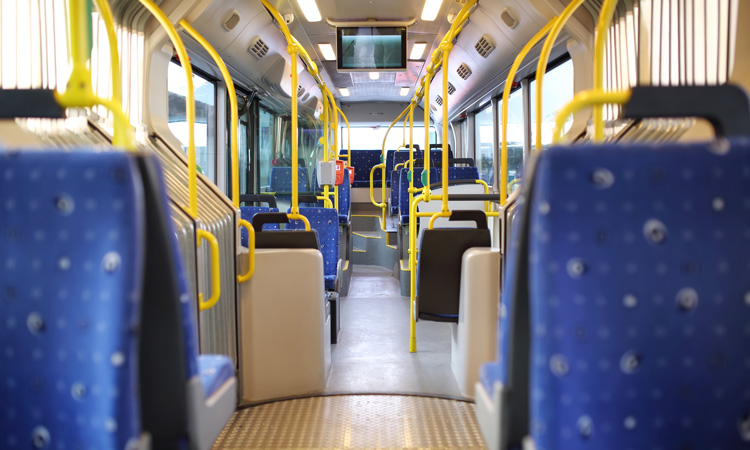Open letter: leveraging public transport in Europe’s pandemic recovery
- Like
- Digg
- Del
- Tumblr
- VKontakte
- Buffer
- Love This
- Odnoklassniki
- Meneame
- Blogger
- Amazon
- Yahoo Mail
- Gmail
- AOL
- Newsvine
- HackerNews
- Evernote
- MySpace
- Mail.ru
- Viadeo
- Line
- Comments
- Yummly
- SMS
- Viber
- Telegram
- Subscribe
- Skype
- Facebook Messenger
- Kakao
- LiveJournal
- Yammer
- Edgar
- Fintel
- Mix
- Instapaper
- Copy Link
Posted: 21 April 2020 | European Metropolitan Transport Authorities (EMTA) | No comments yet
In an open letter to the European Commission, Parliament and Council, the President and Secretary General of the European Metropolitan Transport Authorities (EMTA) explain why the European COVID-19 recovery plan should prioritise the sustainability and inclusivity of public transport.


With the novel coronavirus holding the world in a firm grip and public life in Europe reduced to a minimum, many Europeans, organisations and complete sectors find themselves in the midst of the hardest challenge they have ever faced.
The measures taken to mitigate the impact of the pandemic fortunately appear to have become effective, yet the speed and scale at which these measures had to be taken has unavoidably led to disruption of daily life and uncertainty.
What is certain in these extraordinary times, however, is that Europe’s public transport continue to service society. Despite the immense drop in passenger numbers due to social distancing efforts, public transport authorities keep services running, ensuring that Europeans with vital functions in our health institutions, food distribution, supermarkets and other critical and system-relevant sectors can get to their workplace and continue their indispensable work.
What is certain in these extraordinary times, however, is that Europe’s public transport continue to service society
Transport authorities have had to adjust services to address the significantly lower demand and unusual high rates of illness among drivers and system-relevant personnel. Nevertheless, in collaboration with their contracted rail and bus operators, excellent work is being done in providing acceptable journey times for critical workers and enough vehicle capacity to ensure those relying on public transport and the drivers running the service can comply to safety distance standards.
To meet these challenges, the colleagues in the public transport authorities continuously examine the way forward and constantly find pragmatic procedures and solutions, often from within their own living rooms.
Public transport in Europe is strong and will find ways to master these challenges
Producing an acceptable transport service level despite the low patronage and resulting revenue dropout, in connection with increased cleaning and sanitising efforts, however, has led to a severe increase in expenditure. Previously unknown cost factors related to the stand-still of large parts of the transport fleet, a situation so unprecedented that it is largely underrepresented in transport operation contracts, further adds to accumulating costs that will eventually have to be borne by Europe’s public transport authorities.
Public transport in Europe is strong and will find ways to master these challenges. The high cost, however, will severely impact the sector for the years to come. Ambitious objectives of Europe’s transport authorities with regard to decarbonisation of fleets, digitalisation and strengthening of sustainable mobility, that are inspired – but also required – by the goals and ambitions formulated at the European level, unexpectedly appear at risk of being unattainable.


Public transport patronage has dropped by as much as 90 per cent in some parts of the world
Economic distress and the imminent recession put Brussels in crisis mode, debating and passing immediate help measures at a record speed. It is fully comprehensible that in a following step, the European and national government institutions will have a strong focus on the urgently needed economic recovery and securing of jobs. The response to this urgency should, however, not come at the expense of the Union’s objectives and ambitions for a sustainable continent.
Investments in public transport, its service quality, infrastructure, decarbonisation and digitalisation are equitable, as it ensures accessibility to employment, health and education centres for everybody, particularly those who most need support in times of crisis. It provides capacity for the sustainable growth of our cities and metropolitan areas. It has proven to spur economic impulse and create local jobs. And it enables mobility, the democratic freedom we have come to appreciate considerably more in these times, in its most environmentally friendly way.On the contrary, the sustainability objectives that cumulated in the formulation of the Green Deal should be the guiding principles for the recovery of Europe’s economy and social fabric. Let these objectives be one of the few certainties in this difficult time by embracing the ambitions and steering recovery strategies and funds towards their achievement! The European Metropolitan Transport Austerities (EMTA) and our 29 member transport authorities are committed to play our part in this crisis and recovery from it and would like to remind the European Commission, Parliament and Council of the recovery power tool already at your disposal: public transport.
In more concrete terms, strong support actions could come from the European Investment Bank (EIB) that should propose flexible terms and conditions for potentially deferring the payment of interest due until 2020. Furthermore, as public transport budgets are likely to be very tight after the crisis, some additional subsidy envelope – directly open to public transport authorities, outside the criteria of the Juncker Plan which provides for risk-taking clauses – could be considered for energy transition in public transport in order to avoid jeopardising many already ongoing projects throughout Europe.
Investments in public transport, its service quality, infrastructure, decarbonisation and digitalisation are equitable, as it ensures accessibility to employment, health and education centres for everybody
In the same way, innovative and more flexible loans with much faster instruction may also be implemented to enable transport authorities to secure necessary investments in the coming years. In supporting Europe’s transport authorities to continue and intensify their ambitious work, public transport can become an important lever in your recovery plan. A lever that satisfies both objectives – economic recovery and sustainable development – while at the same time being very visible for Europeans in their daily life, thus having the potential to become one of the symbols of recovery the continent will need. We are aware that the recovery process will require collaboration of all European institutions, at city, metropolitan and regional, as well as national and European level.
Related topics
COVID-19, Fleet Management & Maintenance, Infrastructure & Urban Planning, Mobility Services, Public Transport, Sustainable Urban Transport
Related cities
Europe
Related organisations
European Commission, European Investment Bank (EIB), European Metropolitan Transport Authorities (EMTA)








